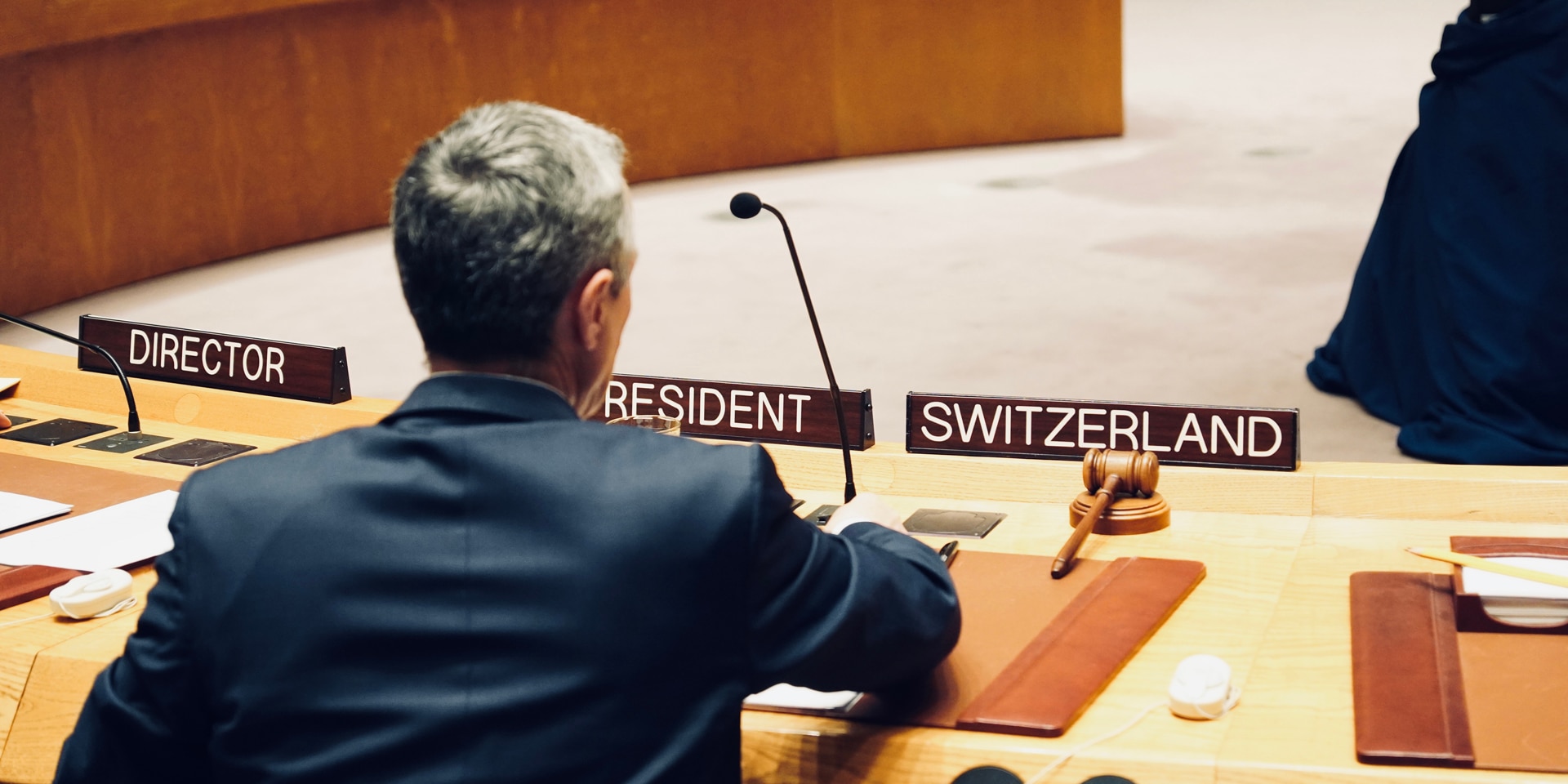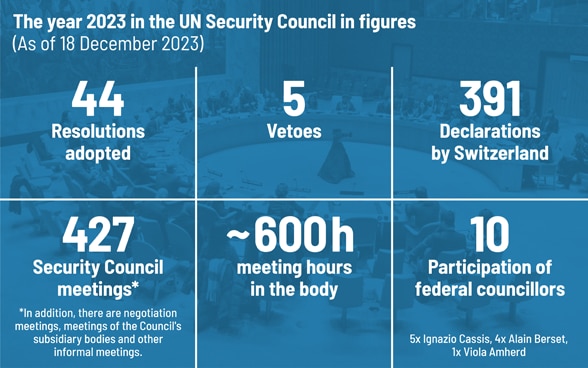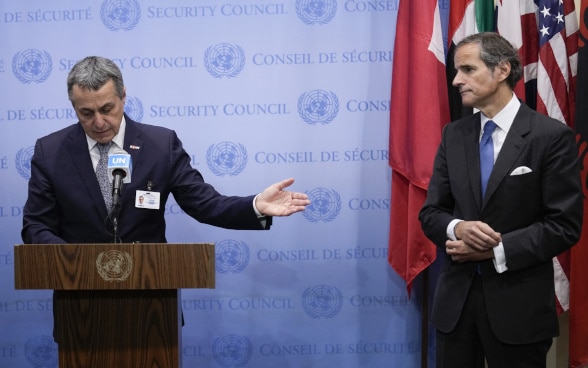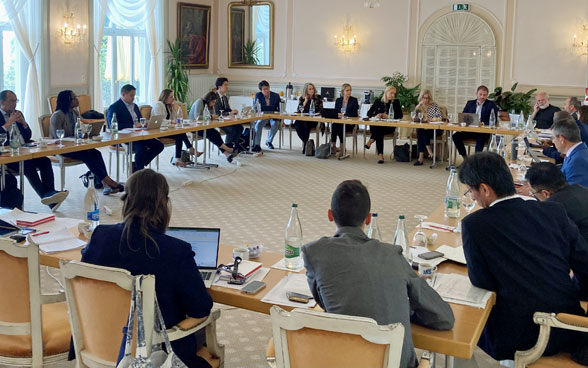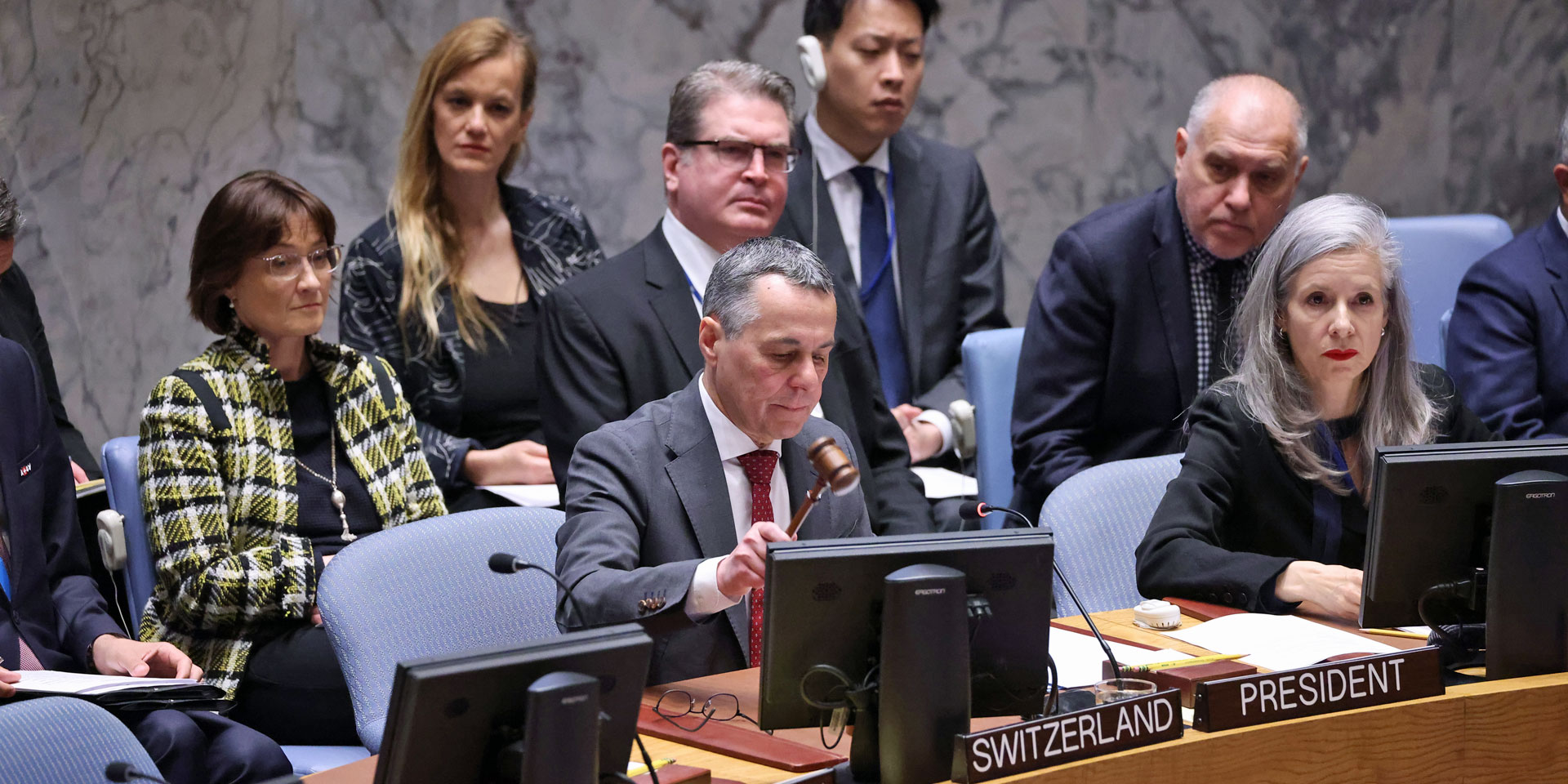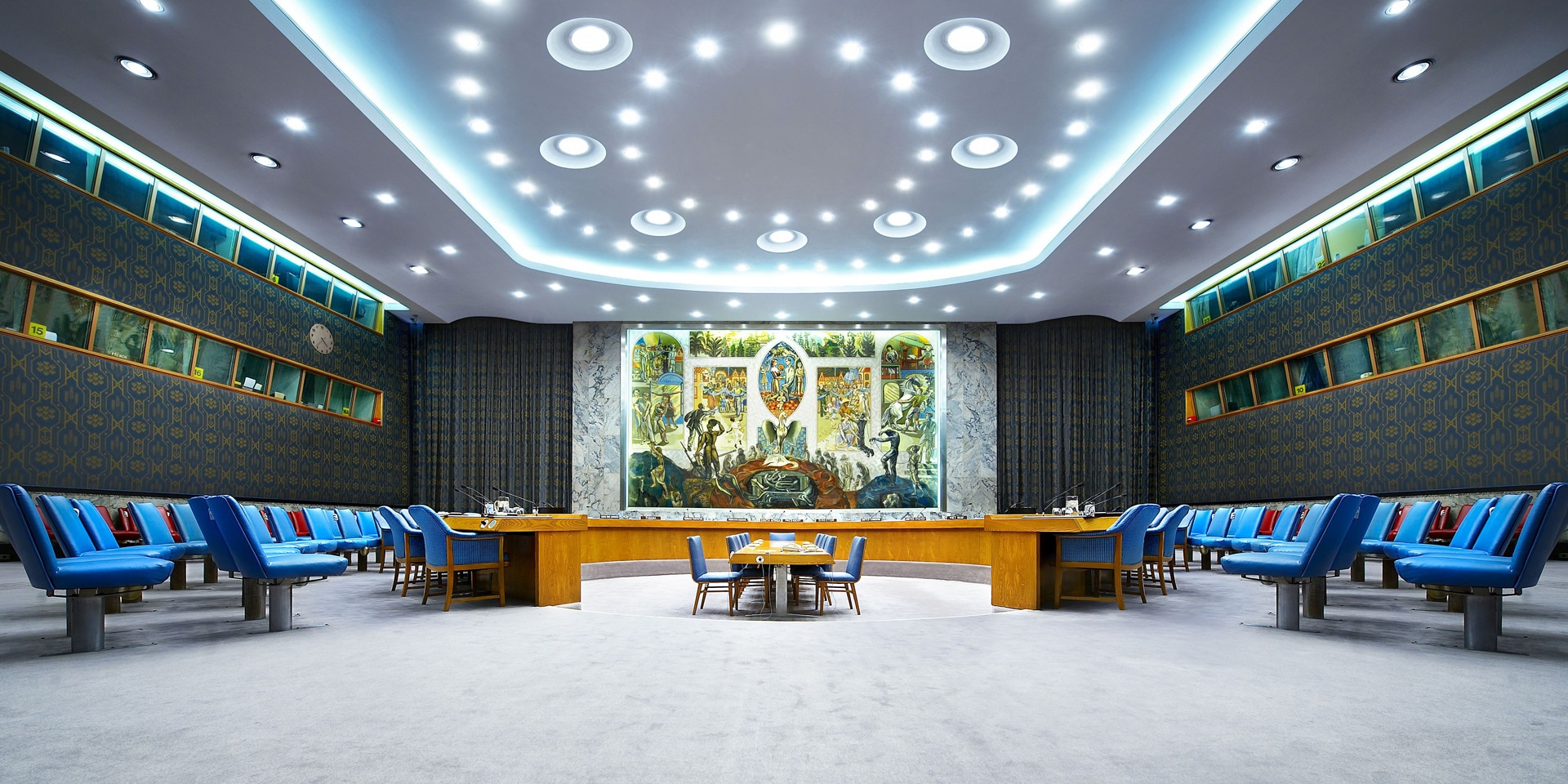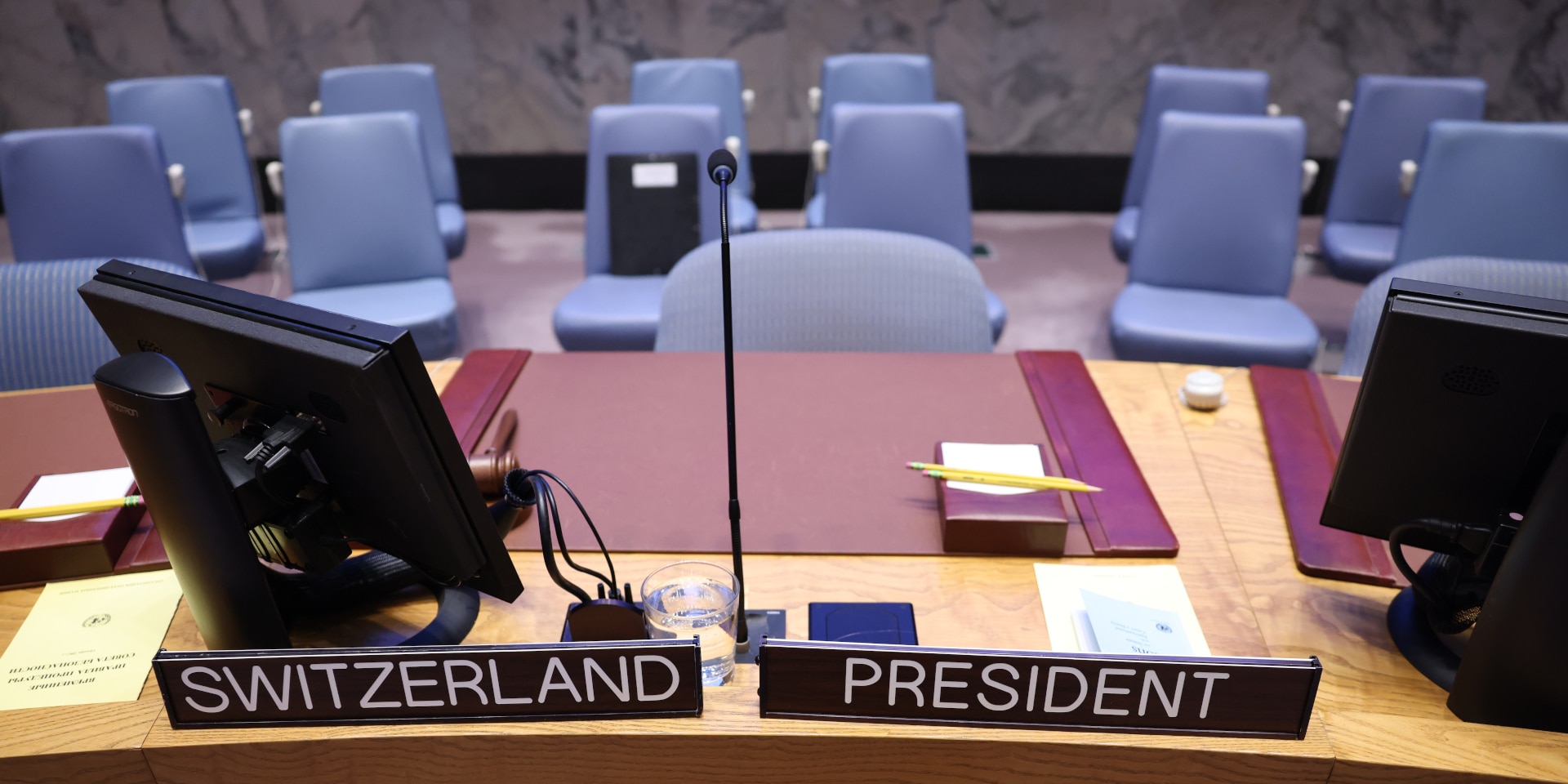Building sustainable peace
As part of its priority of building sustainable peace, Switzerland, as a member of the Security Council, is committed to fostering trust in order to strengthen cooperation between Council members. On 3 May, Switzerland organised a high-level debate during its month-long presidency, focusing on building trust for global peace and security. With the statement "Where there is trust, anything is possible", Federal Councillor and head of the FDFA Ignazio Cassis launched the Council discussion on a topic that is more important than ever against the backdrop of mistrust and tensions between the major powers. The bulk of the 68 countries that took part in the debate agreed that trust in institutions is a key enabler of peace. Mr Cassis emphasised that science can play a key role in promoting sustainable peace. Scientifically sound facts underpin mutual trust, and science and new technologies offer the opportunity to anticipate and understand future risks and opportunities, in order to respond to them.
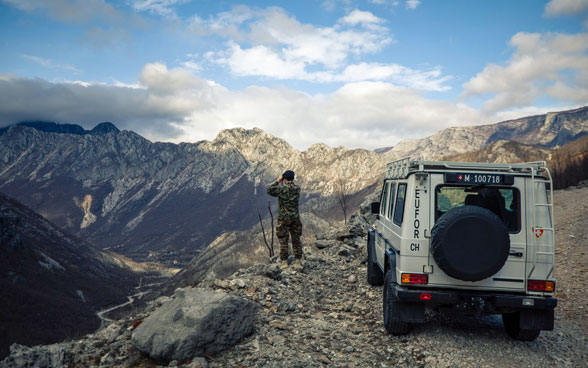
On 2 November, the UN Security Council unanimously authorised the mandate of the EUFOR ALTHEA stabilisation mission in Bosnia and Herzegovina for another year. The core task of the mission is to support the authorities in maintaining a secure environment in the country. This year's negotiations took place under Switzerland's leadership. In this role, it facilitated dialogue between all parties. EUFOR ALTHEA makes an important contribution to peacekeeping in Bosnia and Herzegovina and helps stabilise the Western Balkans region.

